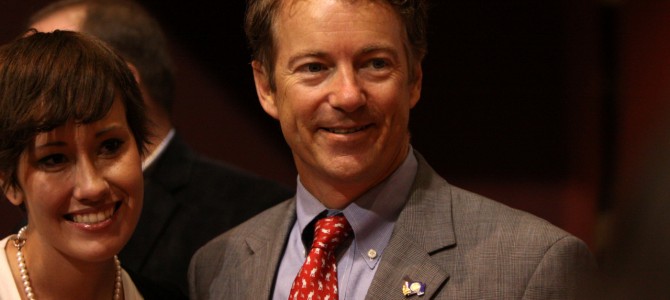Richard Epstein recently wrote in his Defining Ideas column about where he parts company with Sen. Rand Paul (R-KY) and what he terms as “hard-line libertarians.”
Richard drew a fair distinction between himself — a classical liberal who uses the term “libertarian” as shorthand — and the whole taxation-as-theft branch of libertarianism, of which I’ll happily count myself as a member. From Epstein’s “My Rand Paul Problem“:
Libertarians fall into two distinct groups: strict libertarians like Rand Paul and classical liberals such as myself. “Classical liberal” is not a term that rolls off of the tongue. Consequently, “libertarian” is the choice term in popular discourse when discussing policies that favor limited government. Libertarians of all stripes oppose President Obama’s endless attacks on market institutions and the rich. The umbrella term comfortably embraces both strands of libertarian theory vis-à-vis a common intellectual foe.
The renewed attention to Paul exposes the critical tension between hard-line libertarians and classical liberals. The latter are comfortable with a larger government than hard-core libertarians because they take into account three issues that libertarians like Paul tend to downplay: (1) coordination problems; (2) uncertainty; (3) and matters of institutional design.
Herding libertarians is like herding cats. (In fact, in a recent podcast, Jonah Goldberg pointed how cats are Randians. Being a Randian, and owning several cats, I can’t help but agree. If there was ever a creature that acted exclusively in its own rational self interest and eschewed altruism, it’s a cat.) There’s a huge diversity in libertarians and their various positions and how they get to those positions. Find some libertarians and have them debate minarchism versus anarchism, and you’ll see what I mean. Libertarians have loud and enthusiastic disagreements about everything from privatizing city streets to treating dolphins as people.
I don’t get into the minarchism versus anarchism pissing contest because it really puts the cart before the horse. In 1980, Ronald Reagan ran on a platform of eliminating the federal Department of Education, probably the most useless cabinet level department (although it has plenty of competition). Thirty-four years later, it’s still alive and kicking. I think the eternal death struggle over minarchism versus anarchism is a little premature.
Which brings us to Rand Paul. If I may “be real” for a minute, let’s not fool ourselves: Barring some unforeseen implosion or him getting hit by a bus, Rand Paul is running for president in 2016.
If you take 20 random libertarians, you’ll get 20 different worldviews, positions, and ways they got to those positions. But I’m willing to bet that at least 15 of them will be in favor of eliminating the Department of Education.
In fact, I suspect that there’s more than enough common ground between Richard Epstein’s classical liberalism and Rand Paul’s hard-line libertarianism to last us four years. And I’ll bet that we have more than a century of federal programs that need to get peeled backed before we can even begin to have much noticeable disagreement on the issues of the day.
Whoever is sworn in as president in January of 2017 will have to deal with specific questions. And when those questions are asked, we have a long, long way to go before the classical liberals have to fight the hard-line libertarians. They’re going to have the same answers for a while.
Any president, no matter how anti-government, will be limited in how much he can peel back, such is the nature of both the presidency and of the Leviathan that already exists. Even if someone is entirely opposed to eminent domain, no president can eliminate it in four years. But beginning to shrink the size and scope of our federal government? A president can do a lot about that. He can also steer the national conversation to talking about system abuses of our civil liberties.
And compared to the big government tendencies of someone like Bob Dole or George Bush or John McCain or Mitt Romney, a President Rand Paul would look great to both a hard-line libertarian and a classical liberal.
So what I’m suggesting is that it’s a little premature to write off Rand Paul for being too hard-line. I do however trust that a President Rand Paul would do something that I don’t trust his potential rivals to do: Actually want to limit government.








